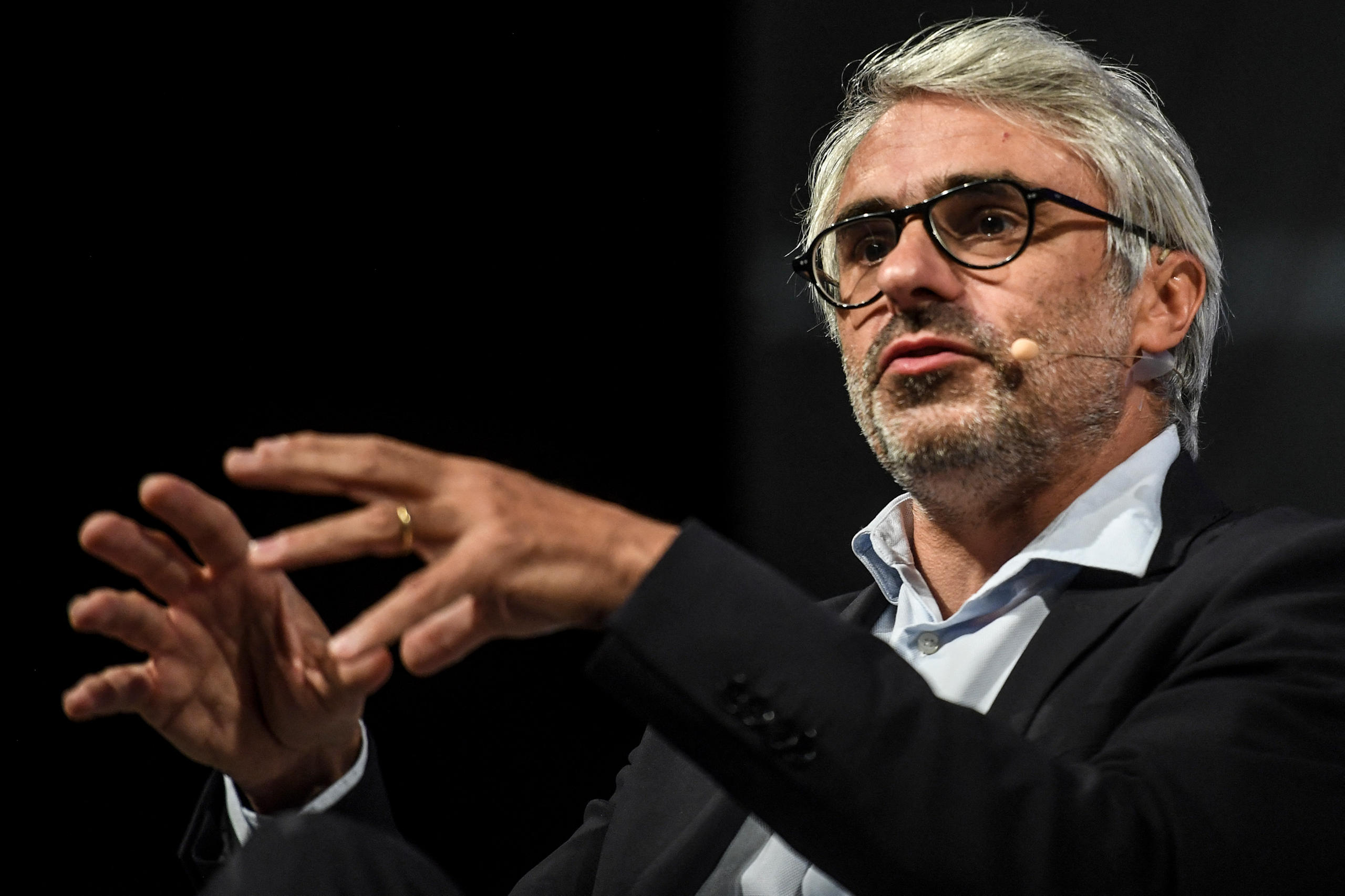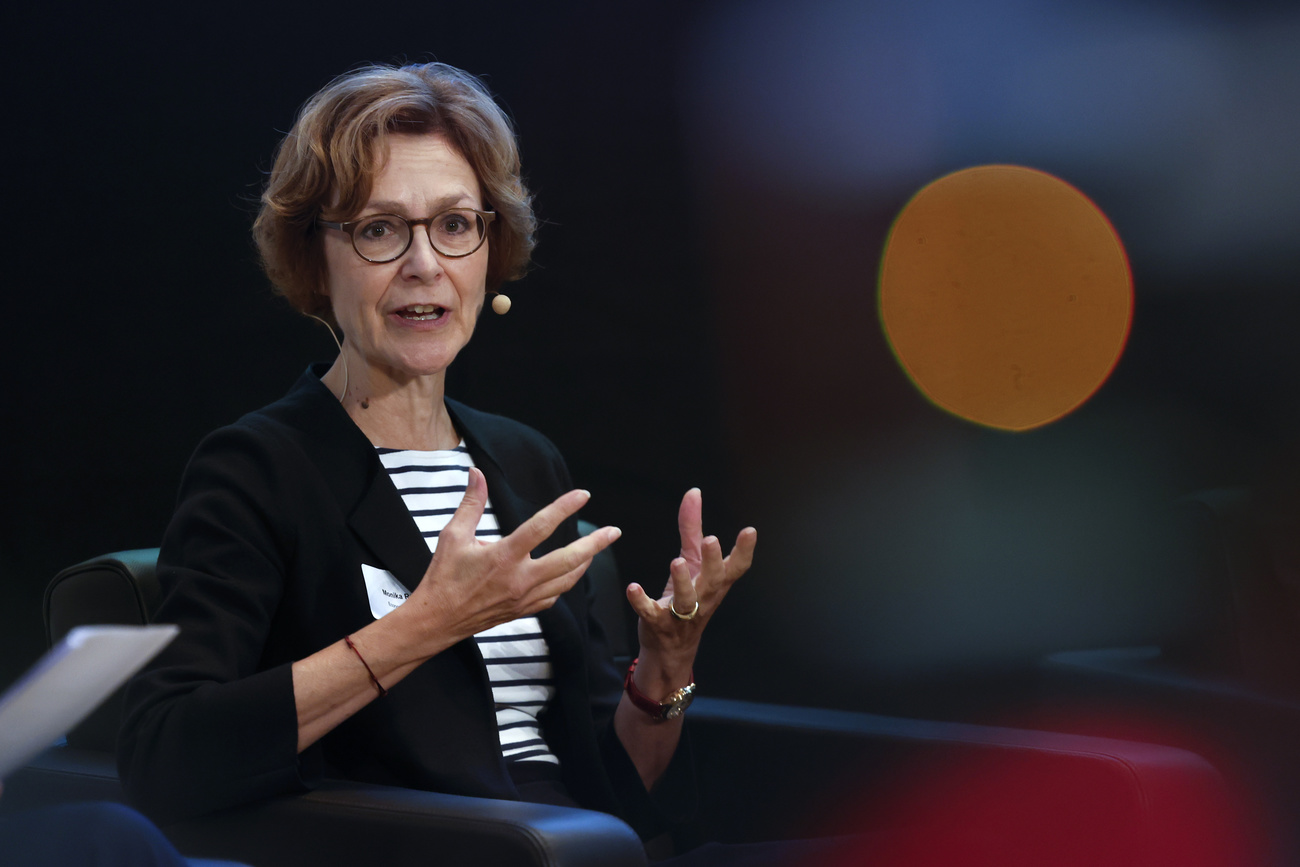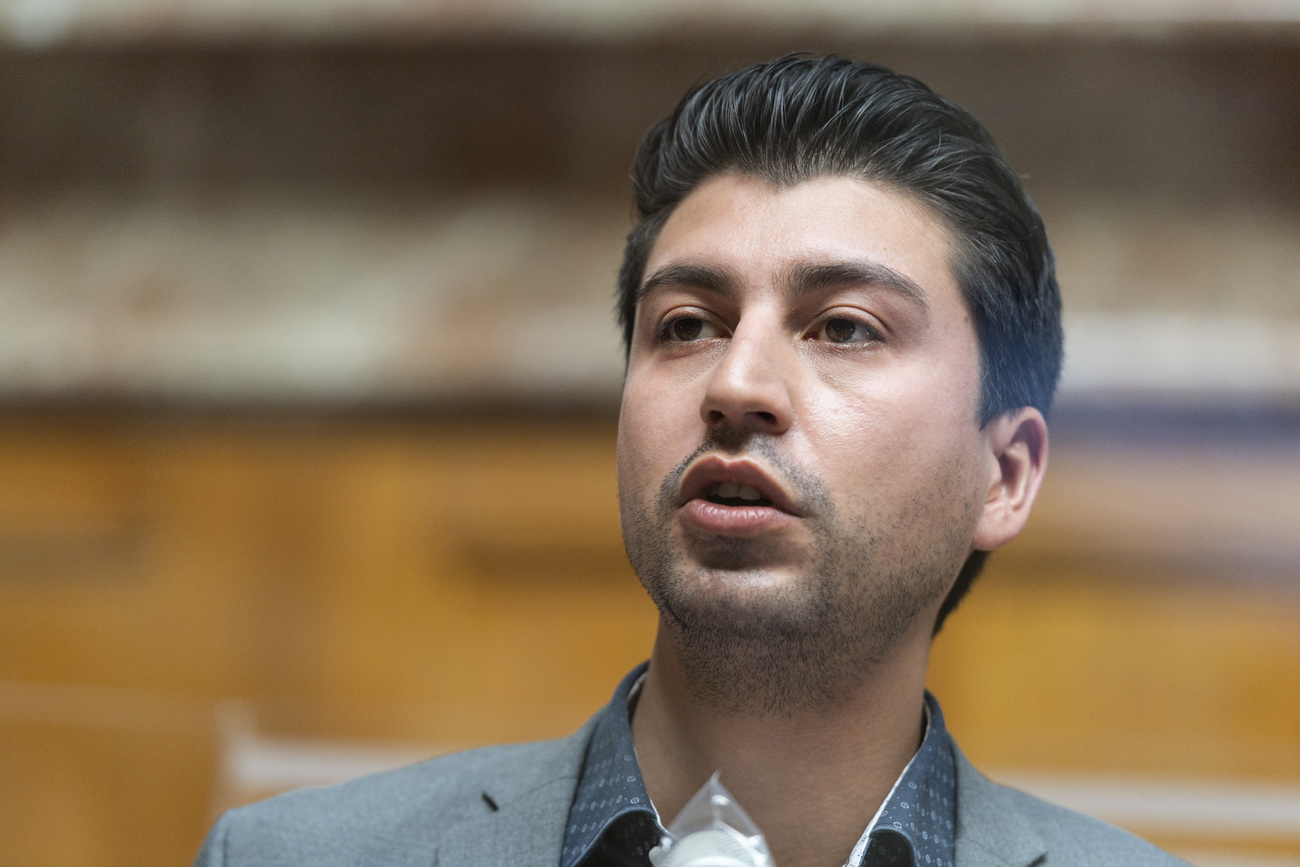Tax reform: ‘Switzerland has understood that it’s better to be at the negotiating table’

Swiss voters have accepted an overhaul of corporate tax rules instigated by the Organisation for Economic Co-operation and Development (OECD). Pascal Saint-Amans, who spearheaded the global plan during his time as director of the OECD’s Centre for Tax Policy and Administration, says the reform is the culmination of years of work to clamp down on tax avoidance.
The principle of a minimum tax rate for big international companies has won over Swiss voters. The OECD- and G20-driven plan was broadly accepted in a referendum on Sunday. Multinational firms in Switzerland, with an annual turnover of at least €750 million (CHF732 million), will thus face a minimum tax rate of 15% from 2024.

More
Swiss voters back minimum tax on multinational earnings
Pascal Saint-Amans was the main negotiator behind the global agreement, which has been signed by 140 countries to date. He explains how the Swiss authorities were not always so cooperative during the talks.
SWI swissinfo.ch: As the father of this reform, are you pleased that it has been accepted in a popular vote?
Pascal Saint-Amans: I am delighted to see the entire international community applying this agreement, including a country like Switzerland. Despite its particular history with taxation, Switzerland has clearly understood the advantage of cooperating with other countries. It is the only nation to have put this reform to a popular vote. This is the culmination of some 15 years of hard work to build common rules.
SWI: Does the Swiss vote in support of the reform bode well for its implementation?
P.S.: It certainly does. We have now reached a critical mass of countries having adopted minimum taxation: the G7 countries and many of the G20 countries, as well as other states that have built a significant part of their economy on tax competition – such as Switzerland and the United Arab Emirates. So, even if the US and China do not apply the reform, it will still have an impact.
SWI: Can it really work without the US?
P.S.: Yes, it can, because the reform has been designed in such a way that if one country does not play along, additional taxes can be levied in another one. So, as soon as a critical mass of nations has implemented the reform, the global minimum tax can be applied even to companies from countries that are not on board. The US, for instance, has not adopted the reform. Yet US companies that benefit from tax regimes of under 15% – because they have located their profits in Bermuda, for example – will still be taxed at a minimum of 15%; not in the US, but in Europe, Japan or any other country applying the reform.
After graduating from France’s elite École Nationale d’Administration (ENA), Pascal Saint-Amans worked for the French Ministry of Finance. He joined the Organisation for Economic Co-operation and Development (OECD) in 2007, becoming the director of its Centre for Tax Policy and Administration in 2012. He left this post in October 2022 to join the University of Lausanne, where he is now part of the management of its Tax Policy Centre.
For many years, Saint-Amans led tough negotiations with the Swiss authorities to bring an end to banking secrecy. He achieved this goal when Switzerland accepted rules on the automatic exchange of information in 2017. He has been a driving force behind international tax reform over the past 15 years.
SWI: During the negotiation process, Switzerland dug in its heels against increasing tax rates. Was it trying to scupper the reform?
P.S.: Switzerland merely defended its interests. With its highly developed economy, which is largely based on very attractive tax regimes, it had every reason to try to limit the impact of the global minimum tax. After the end of banking secrecy, however, it realised that other countries could implement the reforms without it. Switzerland has understood that it is better to be at the negotiating table and to exert influence, rather than trying to block the process.
SWI: The Social Democratic Party and trade unions in Switzerland were against the reform, on the grounds that it will only benefit the country’s wealthy cantons, which are home to many multinationals. Do you understand this criticism?
P.S.: This is a purely Swiss criticism, which has nothing to do with the global tax reform. It is a question of reallocating funds within the state. I therefore have no comment to make in this debate. Switzerland itself must find the right balance, in full sovereignty.
SWI: The same criticism is also levelled internationally. Developing countries are highly critical of the reform, holding that the increase in tax rate will only benefit rich countries. Is this so?
P.S.: No, this is not true. Developing countries currently forego a lot of tax revenue by granting exemptions in order to attract investment. They could easily put an end to these exemptions. And, in any case, they will disappear, for if developing countries do not tax multinationals, then other countries will be able to do so at 15%. I believe this criticism stems mainly from a lack of understanding of the mechanisms.
SWI: Tax rates are generally higher (25–35%) in the countries of the Global South, which are rich in raw materials. Will they really benefit from a minimum rate of 15%?
P.S.: Yes, they will. The reform does not stipulate that the profits made by a company in a country where it operates must be taxed at 15%. They may be taxed at 25% or more. However, the profits made by a multinational abroad, which until now could avoid taxation, will no longer be able to do so.
SWI: Is there not a risk that these countries will come under pressure to lower their tax rates to the minimum OECD threshold, as some NGOs claim?
P.S.: No, I do not think so.
SWI: So far, the web giants are exempt from this reform. How can they be made to pay?
P.S.: They are not exempt. Up to now, their profits have been taxed very lightly. From now on, they will also be taxed at 15%. The remaining question is where these companies should put their profits. This is the other part of the reform, known as Pillar 1. It seeks to ensure that more of the profits, namely a quarter of these companies’ earnings, go to the countries where the consumers are located. Negotiations on this are still underway and are progressing slowly.
SWI: Why is this part of the reform more difficult to implement than the minimum tax on large companies?
P.S.: The global minimum tax only requires that countries pass domestic laws based on the same model, like that which Switzerland put to a popular vote. It was thus enough for the parties to agree on a model and for each country to apply it. To implement Pillar 1, the parties must not only agree on a model but also sign a multilateral treaty, which has to be ratified by the states. So the political and legal dynamics are not at all the same. This said, an agreement should be reached by July.
Translated from French by Julia Bassam

In compliance with the JTI standards
More: SWI swissinfo.ch certified by the Journalism Trust Initiative












You can find an overview of ongoing debates with our journalists here . Please join us!
If you want to start a conversation about a topic raised in this article or want to report factual errors, email us at english@swissinfo.ch.